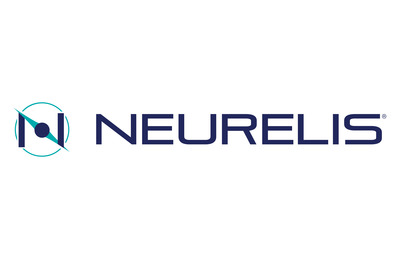Neurelis, Inc., announced the first two cohorts dosed in the investigational clinical trial of NRL-1049, a Rho kinase (ROCK) inhibitor, a potential treatment for people living with cerebral cavernous malformations (CCM), a disease characterized by abnormally enlarged capillary cavities in the brain and spinal cord.
SAN DIEGO, Calif., March 24, 2023 /PRNewswire/ -- Neurelis, Inc. announced the first two cohorts dosed in the investigational clinical trial of NRL-1049, a Rho kinase (ROCK) inhibitor, a potential treatment for people living with cerebral cavernous malformations (CCM), a disease characterized by abnormally enlarged capillary cavities in the brain and spinal cord. This is a first-in-human study designed to establish safety, tolerability, and pharmacokinetic parameters of NRL-1049. “We are excited to initiate this study because it will build upon the preclinical activity and tolerability observed in preclinical studies. People afflicted with CCMs have limited treatment options, which include management of seizures through anti-seizure medications and in limited selected cases surgical intervention to remove lesions,” said Founder and CEO of Neurelis, Craig Chambliss. “If successful, NRL-1049 has the potential to be the first FDA approved treatment for CCMs.” An analysis of NRL-1049 preclinical data showed that transgenic mice showing the mutations for familial CCMs treated with NRL-1049 showed a significant dose-dependent reduction in lesion volume and a reduction in hemorrhage (iron deposition) near lesions at all doses after treatment compared with placebo. NRL-1049 will be evaluated in a randomized, dose-escalation, double-blind, placebo-controlled single ascending dose study to establish safety, tolerability, and pharmacokinetic parameters in healthy volunteers. The primary objectives of the study are to determine the maximum tolerated dose (MTD) of a single oral dose of NRL-1049 and collect data on clinical safety and tolerability. “The NRL-1049 Phase 1 study was built on strong preclinical data, both providing greater insight into its potential, which helped inform our decision to initiate this clinical program,” said Chief Scientific Officer, Stuart Madden, PHD, CCHEM, FRSC. “We are excited about what NRL-1049 could mean for patients and appreciate the contributions of the trial volunteers and investigators.” About NRL-1049 In June 2021, Neurelis licensed NRL-1049 from BioAxone BioSciences, Inc., which is an investigational pre-clinical stage small molecule, Rho kinase (ROCK) inhibitor designed to potentially reduce the accumulation of new lesions, as well as alleviate neurological symptoms associated with CCMs. Earlier this year, the investigational New Drug (IND) application to the U.S. Food and Drug Administration (FDA) was accepted for NRL-1049. Cerebral Cavernous Malformations CCMs are a disease characterized by abnormally enlarged capillary cavities, most commonly found in the cerebral cortex, brainstem, and spinal cord. CCMs can present as a single lesion or as multiple lesions. Depending on lesion size and location, CCMs can be “clinically silent” or can present with clinical symptoms ranging from headaches to focal neurological deficits, seizures, and cerebral hemorrhage. People afflicted with CCMs have limited treatment options, which include management of seizures through anti-seizure medications and surgical intervention to remove lesions (e.g., microsurgical resection, stereotactic radiosurgery). There are no FDA-approved therapeutic treatments for CCMs. Most cavernous malformations are conservatively managed by observing for changes in appearance, recent hemorrhages, or other clinical symptoms. About Neurelis Neurelis, Inc., is a commercial-stage neuroscience company focused on the development and commercialization of therapeutics for the treatment of epilepsy and orphan neurologic disorders characterized by high unmet medical need. In 2020, the FDA approved Neurelis’ VALTOCO® (diazepam nasal spray) as an acute treatment of intermittent, stereotypic episodes of frequent seizure activity (i.e., seizure clusters, acute repetitive seizures) that are distinct from an individual’s usual seizure pattern in adult and pediatric patients 6 years of age and older. VALTOCO is a proprietary formulation of diazepam incorporating the science of INTRAVAIL®. Intravail’s transmucosal absorption enhancement technology enables the noninvasive delivery of a broad range of protein, peptide and small-molecule drugs. In its approval of VALTOCO, the U.S. Food and Drug Administration also granted Neurelis Orphan Drug Exclusivity and recognized VALTOCO’s intranasal route of administration as a clinically superior contribution to patient care over the previously approved standard-of-care treatment (a rectal gel formulation of diazepam). For more information on VALTOCO, please visit http://www.valtoco.com/. In addition to VALTOCO, Neurelis is developing NRL-4 as a noninvasive rescue therapy to address the escalation of acute agitation symptoms associated with schizophrenia and bipolar 1 mania in adults. In addition, Neurelis is developing NRL-1049 (previously known as BA-1049), an investigational, Phase I stage small molecule Rho kinase (ROCK) inhibitor, for the treatment of cerebral cavernous malformations (CCMS), a rare disorder of the central nervous system (CNS). For more information on Neurelis, please visit http://www.neurelis.com/. For the latest scientific information on VALTOCO, please visit https://www.neurelismedicalaffairs.com/. Important Safety Information about VALTOCO: Indication VALTOCO® (diazepam nasal spray) is indicated for the acute treatment of intermittent, stereotypic episodes of frequent seizure activity (ie, seizure clusters, acute repetitive seizures) that are distinct from a patient’s usual seizure pattern in patients with epilepsy 6 years of age and older.
Contraindications: VALTOCO is contraindicated in patients with:
Central Nervous System (CNS) Depression The potential for a synergistic CNS-depressant effect when VALTOCO is used with alcohol or other CNS depressants must be considered, and appropriate recommendations made to the patient and/or care partner. Suicidal Behavior and Ideation Glaucoma Neonatal Sedation and Withdrawal Syndrome Risk of Serious Adverse Reactions in Infants due to Benzyl Alcohol Preservative Adverse Reactions Diazepam, the active ingredient in VALTOCO, is a Schedule IV controlled substance. To report SUSPECTED ADVERSE REACTIONS, contact Neurelis, Inc. at 1-866-696-3873 or FDA at 1-800-FDA-1088 (www.fda.gov/medwatch). Please read full Prescribing Information, including Boxed Warning. Contacts: Neurelis: Media:
SOURCE Neurelis, Inc. |





